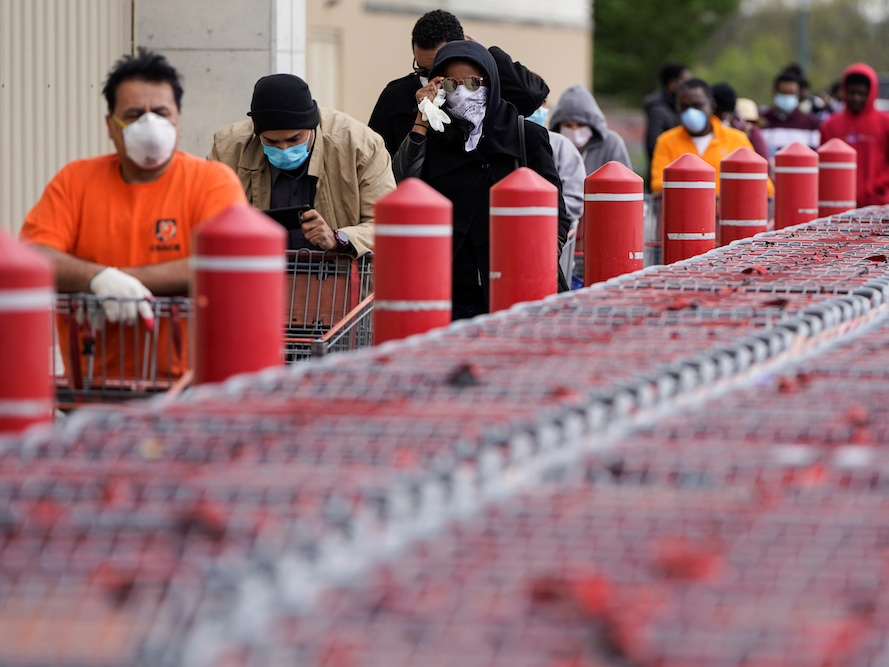
REUTERS/Joshua Roberts
- Costco is selling COVID-19 tests that you can take in the comfort of your own home.
- The test uses saliva samples, which buyers mail to a testing center, receiving results in 24 to 48 hours.
- The test kit costs $129.99 on Costco.com. Costco is charging an extra $10 for the same kit with video observation and assistance.
- Visit Business Insider’s homepage for more stories.
Costco is selling COVID-19 tests that you can take in the comfort of your own home.
The retailer is selling at-home tests that allow customers to test for coronavirus via saliva samples, instead of inserting swabs into their noses for samples. The COVID-19 Saliva PCR Test Kit costs $129.99 on Costco.com. Costco is charging an extra $10 for the same kit with video observation and assistance.
According to test maker P23, the tests are 98% sensitive and 99% specific. (Sensitivity is the probability that the test will produce a true positive response, while specificity is the probability that the test will produce a true negative.)
Read more: There are 11 coronavirus tests you can use from home. Here’s how they work and where to order one.
To take the test, users collect a sample of their own saliva by spitting into a tube. These tubes of saliva are sent to a testing center in a return shipping box, which is included as part of the kit. According to Costco, the tests’ results are then available online or via app within 24 to 48 hours.
The test's official name is the P23 Labs TaqPath SARS-CoV-2 Assay. Costco's version of the test is administered by digital health group Azova.
"P23's test uses parts from Thermo Fisher Scientific and works with collection kits made by testing companies Everlywell and OraSure Technologies, according to the FDA and a P23 spokesperson," reports Business Insider's Blake Dodge. "Samples are tested in its lab in Little Rock, Arkansas."
Dodge reports that just a handful of the hundreds of tests for the novel coronavirus have received emergency authorization from the US Food and Drug Administration to be shipped to people's houses. The P23 test, sold at Costco, is one of the few to make the cut.
Companies have been battling to develop inexpensive and speedy tests that people can administer at home. Experts say that frequent testing can help identify asymptomatic people before they expose others to the coronavirus.
